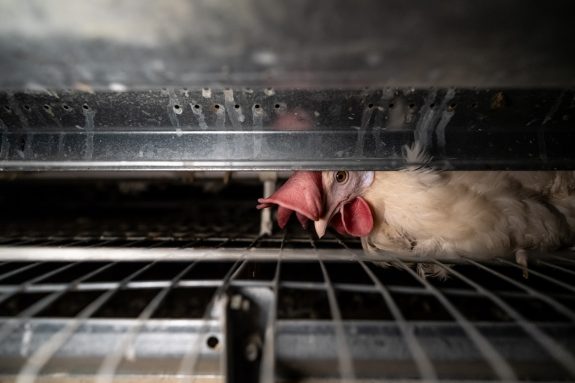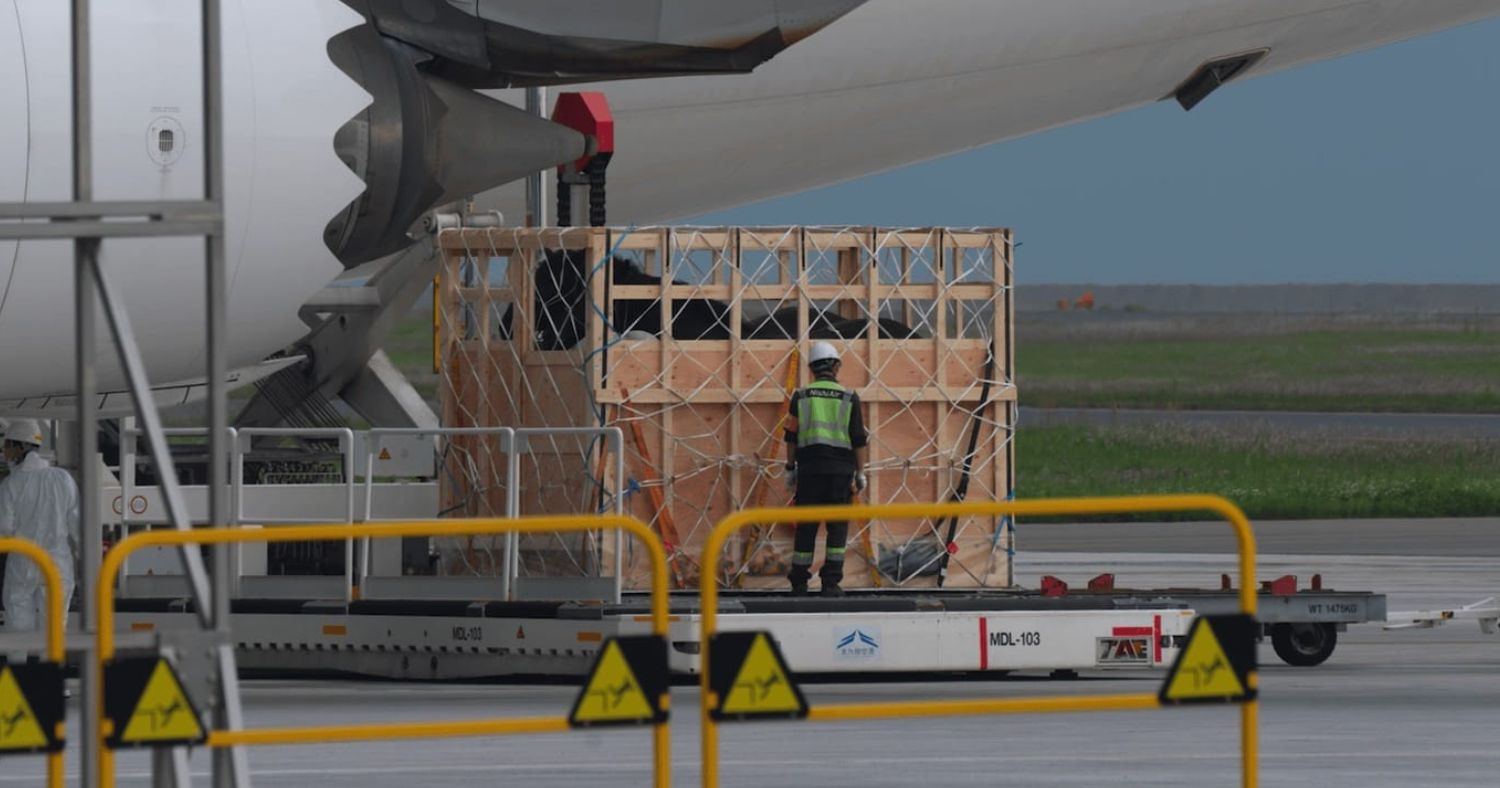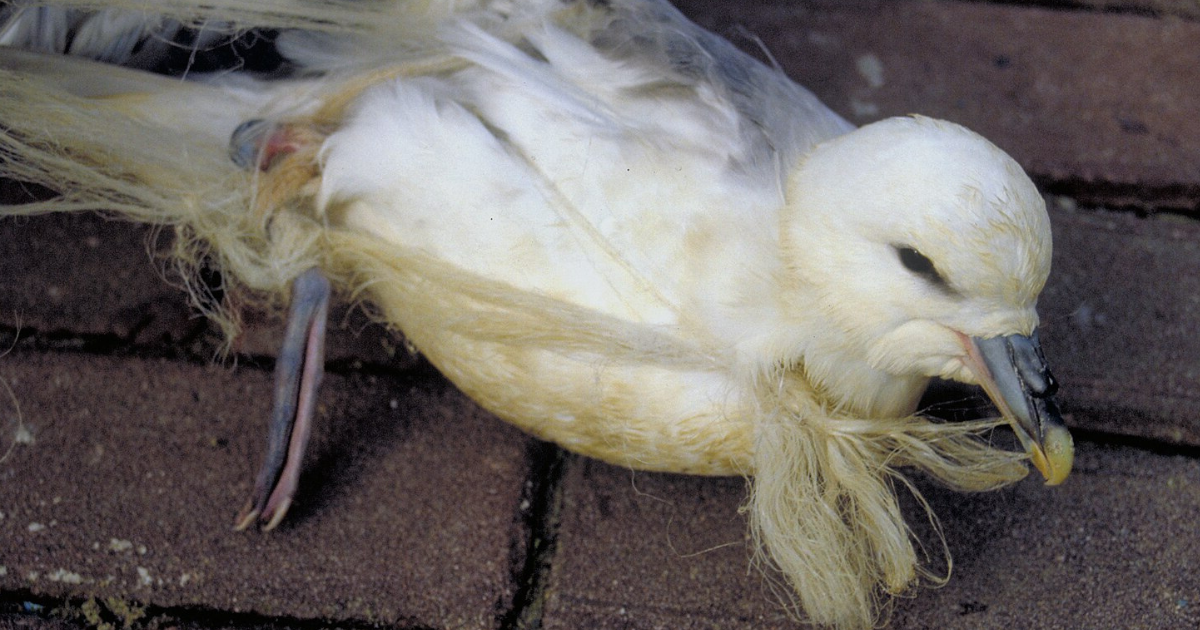A Research Co. survey of 1,000 Loblaw customers is highlighting the prevalence of misleading marketing by Canadian egg companies. The survey found that marketing claims and images on egg cartons are highly misleading to consumers, and that shoppers often have the wrong impression about where eggs come from. For example, when shown cartons featuring grassy pastures, far more people thought the eggs were cage-free, compared to those who correctly identified them as coming from hens confined in cages.
Top Survey Findings
Nearly half of Loblaw customers, when shown Burnbrae’s “Nestlaid” egg cartons, answered that the eggs were cage-free, but in reality the hens that lay those eggs are kept in so-called “enriched colony housing”—a fancy marketing term the egg industry uses to describe a cage. The “nest” is also not what consumers expect—it’s a corner of the cage with a rubber flap where hens can lay eggs.
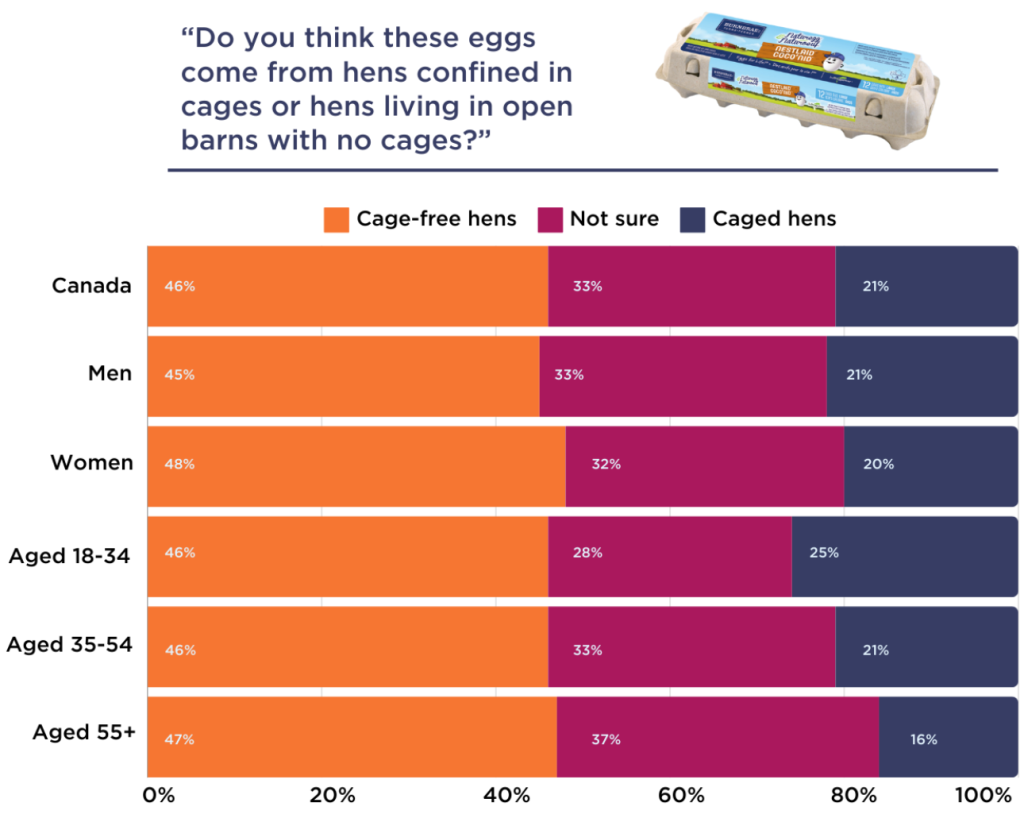
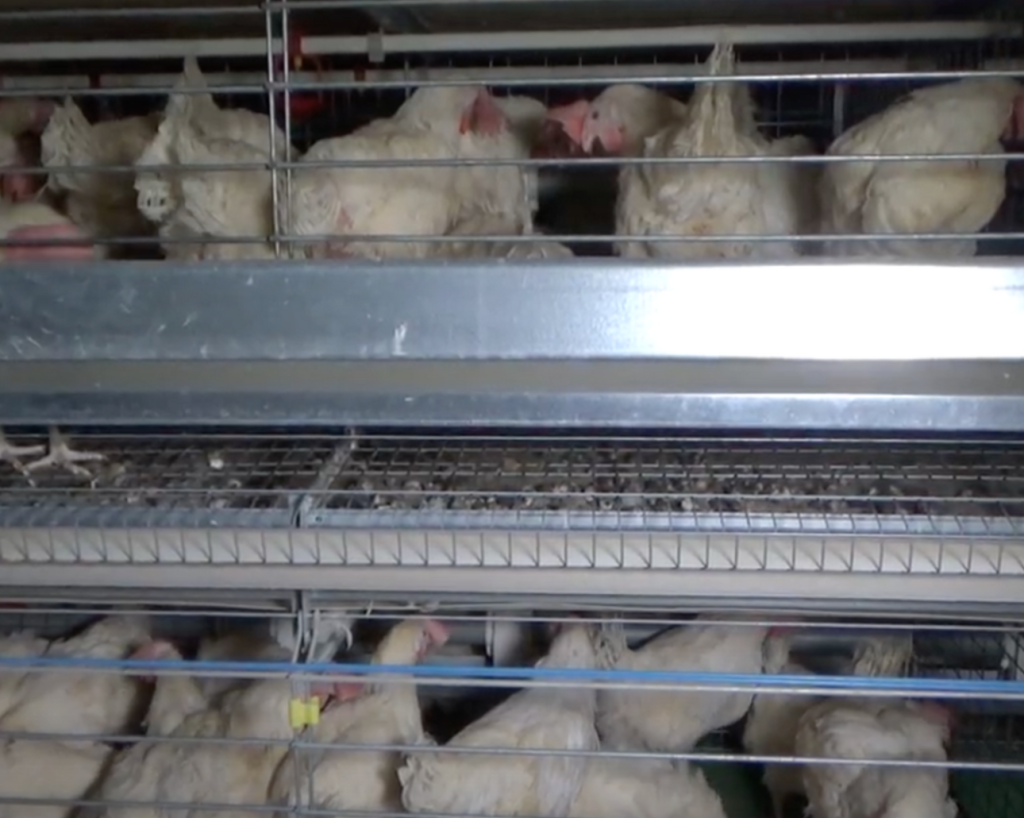
Similarly, 45 percent of Loblaw customers inaccurately thought that Burnbrae’s egg cartons labeled “Nature’s Best” contained cage-free eggs, but those eggs come from hens in either enriched cages or conventional battery cages, which are even smaller and more cramped than enriched cages.
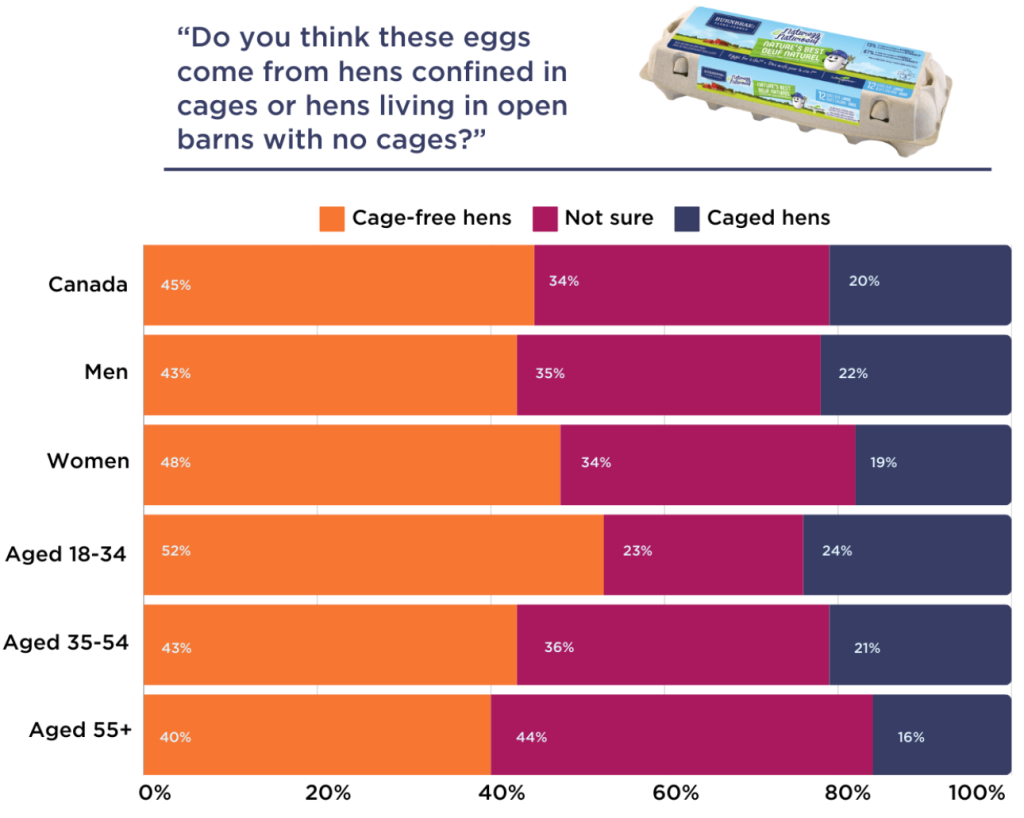
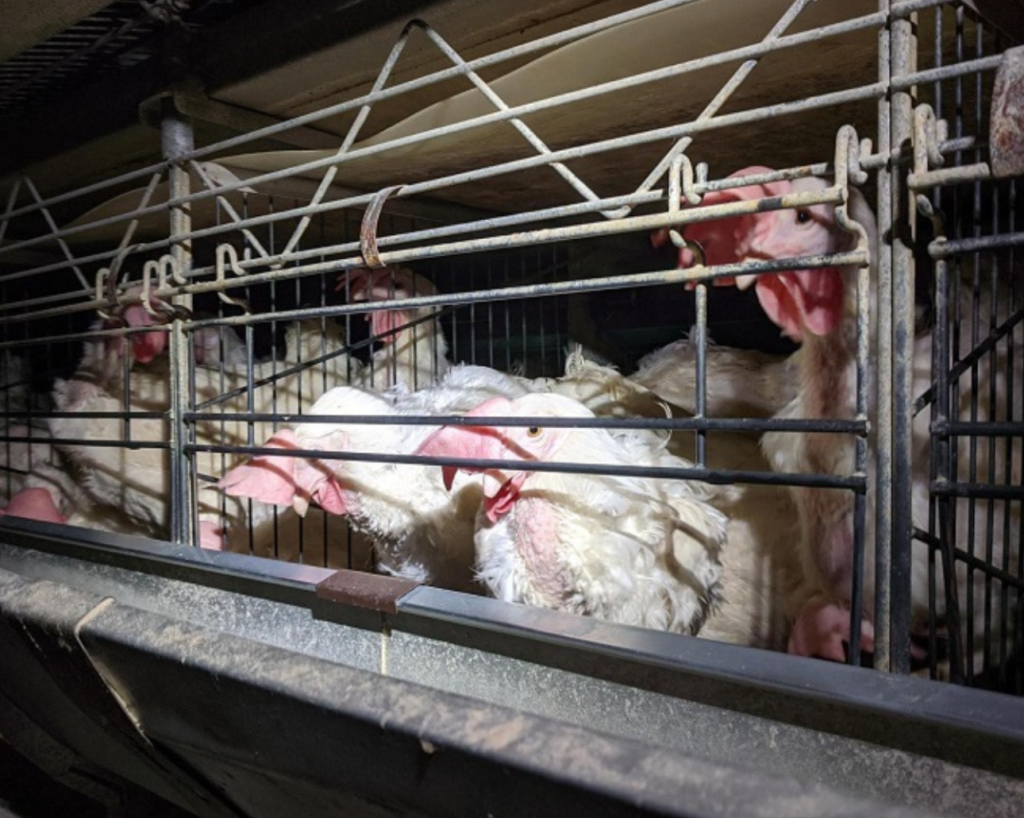
The report found that 82 percent of Loblaw’s customers would favour colour-coded shelf tags identifying which eggs are cage-free and which are not. Additionally, 76 percent favour open barns to conventional cage confinement, and 73 percent favour open barns to enriched cage confinement.
Broken Promises
Caging egg-laying hens is an issue that Canadians came to care about deeply in the 2010s, catalyzed by media scrutiny and undercover exposés documenting heartbreaking suffering on egg farms. Subsequent public outrage prompted an avalanche of corporate cage-free commitments by grocers—many of which have since been abandoned.
Loblaw announced in 2016 that it would transition to exclusively selling cage-free eggs by 2025. They have since declared they’re unable to meet their 2025 deadline, and have shared minimal information about steps taken to switch their egg supply to cage-free over the previous eight years. In July 2023, Loblaw released an updated version of their 2022 sustainability report where they disclosed that cage-free eggs accounted for only 17% of shell egg sales in 2022—which merely reflects the national average.
Prioritizing Truth
The Research Co. report confirms that Loblaw customers support cage-free housing for hens, but are being misled into purchasing eggs from caged hens. These findings align with another survey conducted this year by Animal Justice and Bryant Research that showed customers are willing to pay more for eggs that come from cage-free hens that they believe are treated better.
But consumers can only make better choices if product labels are truthful, and grocers provide accurate information to their customers. Currently, Canada does not regulate any claims made by egg companies on packaging and labels, allowing “humane-washing” by brands to go unchecked. It’s time to put an end to misleading marketing by the Canadian egg industry.
Banner: Abigail Messier | We Animals Media

